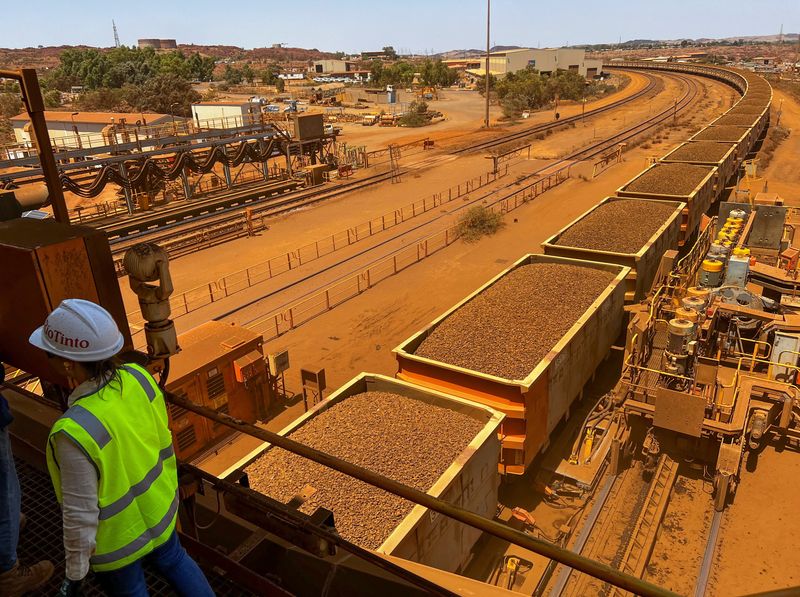By Melanie Burton
MELBOURNE (Reuters) – BHP and Rio Tinto (NYSE:) have used confidentiality agreements to prevent female employees from speaking out about sexual harassment in the workplace, according to a lawyer leading Australian class action lawsuits against the miners.
Brisbane-based law firm JGA Saddler this week filed a class action against each mining giant, alleging widespread and systemic sexual harassment and discrimination at Australian mining sites.
The class actions promise more headaches for the two companies, which have struggled to rebuild their public images. A 2022 Western Australian state government survey of remote mining sites found that women often experienced sexual harassment and assault. The industry is also blamed for the destruction of Aboriginal heritage, mining fatalities and environmental disasters in recent years.
JGA Saddler has spoken to hundreds of women and seen evidence of the mining industry’s widespread use of non-disclosure agreements, lead attorney Josh Aylward told Reuters in an interview. actions.
BHP and Rio said they do not currently use non-disclosure agreements when dealing with allegations of sexual harassment.
Companies have pressured vulnerable workers to sign agreements because they feared losing their jobs or being blacklisted from the sector, Aylward claimed.
“It’s common,” he said. “There are many other industries that have moved on from the use of NDAs and have realized that you have to stand up for past sins, and if people want to talk about what happened to them, they should be able to do that.”
Rio said in a statement to Reuters that it would not enforce historic confidentiality terms that prevented employees from discussing their personal experiences.
A BHP representative referred Reuters to the company’s annual report, where it said it stopped using non-disclosure agreements in March 2019 regarding sexual harassment claims and is not enforcing previous agreements.
Both companies also say they take all allegations of sexual harassment seriously and are working to root it out in the industry.
Angela Green, who worked in BHP’s bomb squad from 2018 to 2024, said in a statement that she plans to join the class action. She said she was unfairly dismissed for falsifying a logbook, which she denies, after filing a sexual harassment complaint.
Green claims she subsequently received compensation from BHP for the manner of dismissal, provided she signed an agreement with a confidentiality clause.
“BHP’s state office said if I signed it they would erase my file and change it to say I was resigning rather than being fired,” she said.
The court documents have yet to be made public. According to a statement from JGA Saddler, the lead plaintiff in the BHP case claims she was urinated on by a male colleague, sexually harassed over a walkie-talkie and had another male colleague do sex in front of her.
The lead plaintiff in the Rio lawsuit claims she received unsolicited sexually explicit messages, as well as videos and photos from a co-worker showing him masturbating in his on-site room. After her complaint, she was overlooked for further training opportunities, she said in the statement.
JGA Saddler has asked the court to suppress the names of the main applicants from the files due to concerns about their personal safety.
The lawsuits have been filed in the Federal Court and a judge will be appointed soon. The judge will then set the times and dates at a hearing, which is expected to take place in February. At that point, the court will order both miners to contact all women who have worked for them since November 2003.

According to its annual report, BHP received 471 reports of sexual harassment across its global operations in the 2024 financial year. 100 cases were investigated and 103 employees were dismissed, resigned or removed from site if they were a contractor.
Rio said last month that cases of rape and sexual assault at the mines continued. An investigation found eight cases of actual or attempted sexual assault.


